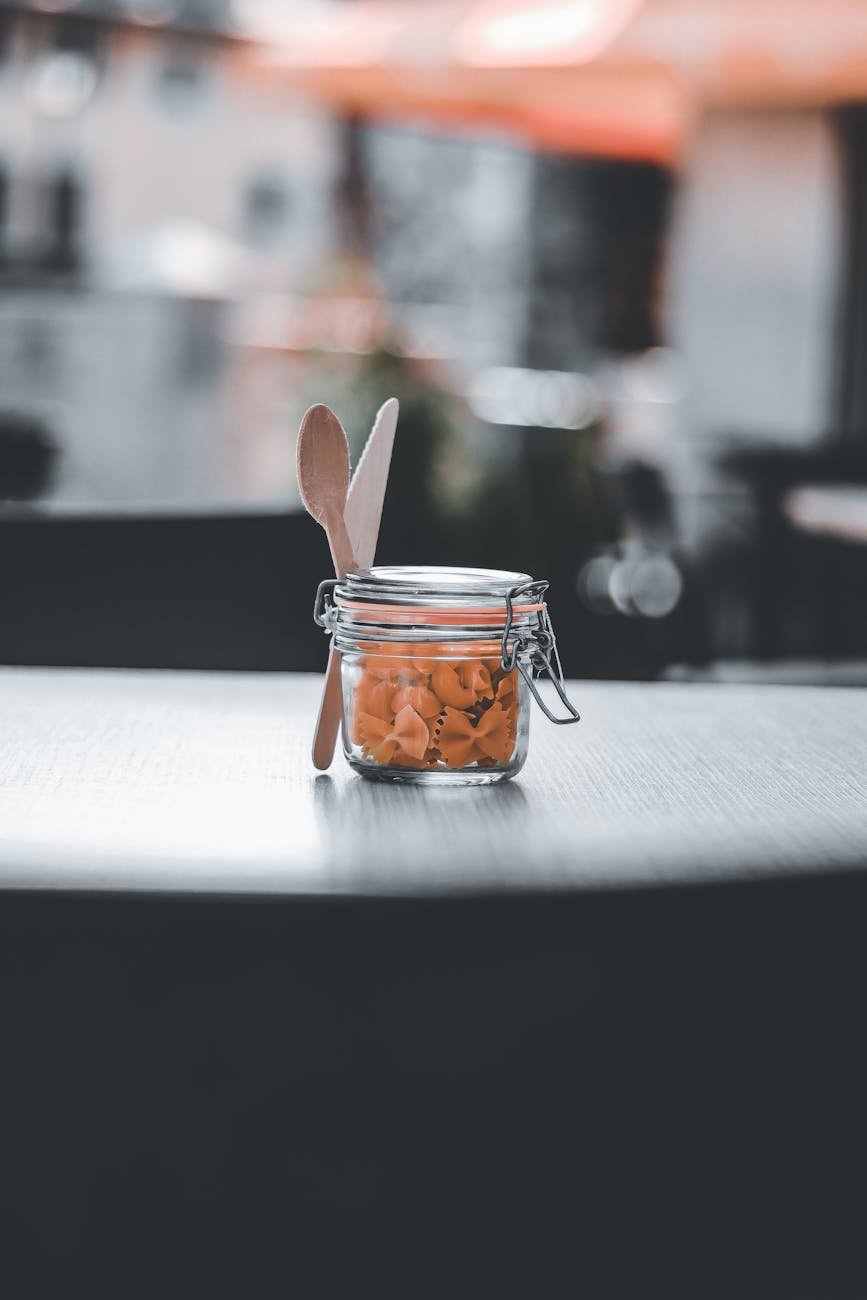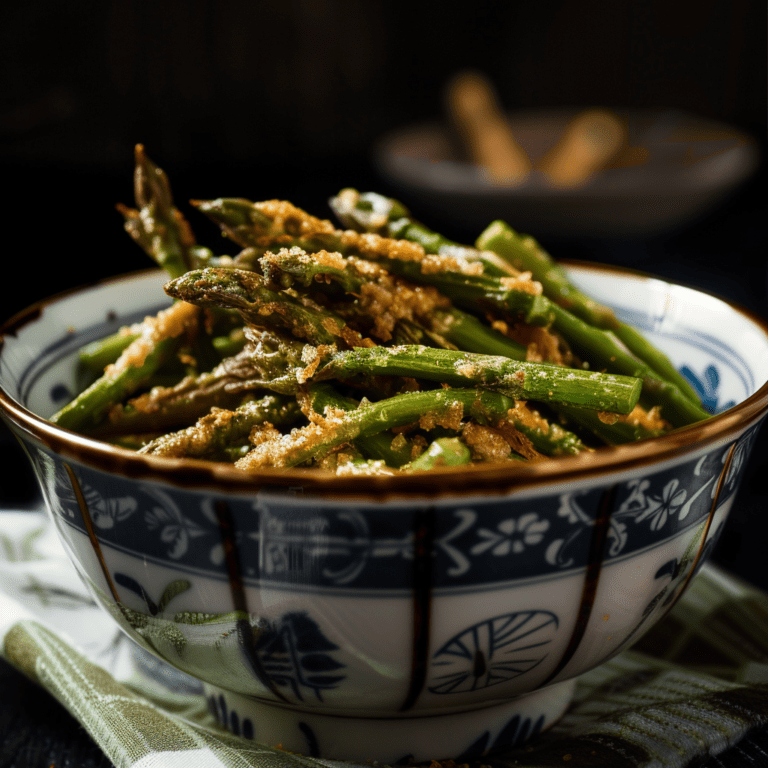The Asparagus Dilemma: To Soak or Not to Soak
Asparagus is a beloved vegetable that brings a touch of elegance to any meal. However, there’s a debate among culinary enthusiasts about whether or not asparagus should be soaked in water before cooking. Let’s delve into the truth behind this practice and explore what exactly it entails.
Myth or Fact: Soaking Asparagus Before Cooking
The idea of soaking asparagus before cooking it has circulated in kitchens and among home chefs for years. Some argue that soaking can help clean the asparagus more thoroughly and make it more tender. However, is this traditional wisdom supported by culinary science, or is it just a kitchen myth?
To understand the debate, we should look at the structure of asparagus. Asparagus stalks are fibrous, with the bottom ends being particularly woody and tough. The theory behind soaking suggests that it helps to soften these fibers, making the entire stalk more uniform in texture after cooking.
When I consider how can you cook asparagus, I encounter various opinions on pre-cooking preparation. While some swear by soaking, others find it unnecessary. The key is to weigh the potential benefits against any drawbacks, which I will discuss in the following sections.
What Does Soaking Asparagus Entail
Soaking asparagus is a simple process. It typically involves submerging the stalks in cold water for a period of time before cooking. Here’s a step-by-step guide:
- Trim the ends: Start by trimming the tough, woody ends from the asparagus stalks. These are usually the bottom inch or so.
- Fill a dish: Use a dish or a container that’s long enough to hold the asparagus stalks. Fill it with cold water.
- Submerge the stalks: Place the asparagus in the water, ensuring that the stalks are fully submerged. You may need to weigh them down with another dish or utensils.
- Soak: Allow the asparagus to soak for anywhere between 15 minutes to 1 hour.
The soaking time can vary depending on personal preference and the thickness of the asparagus stalks. Thicker stalks may benefit from a longer soak to achieve a consistent tenderness.
While the soaking method is simple, it’s important to question its necessity and effectiveness. As we continue to explore the best practices for cooking asparagus, we’ll uncover whether this step enhances the vegetable’s flavor and texture or if alternative methods might be more beneficial. To discover various ways to prepare and enjoy this versatile vegetable, you can read our articles on how can you cook asparagus?.
Pros and Cons of Soaking Asparagus
When I delve into the intricacies of preparing asparagus, a common query that emerges is whether soaking the stalks in water before cooking provides any significant benefits. Let’s explore the potential advantages and disadvantages of this practice.
Benefits of Soaking Asparagus
There are a few reasons why some people might consider soaking asparagus before cooking it. Here are the potential benefits:
- Removes Dirt and Pesticides: Soaking can help to ensure that any residual dirt, sand, or pesticides are removed from the stalks, especially in the crevices of the tips.
- Hydrates the Stalks: If the asparagus has begun to wilt, soaking it in water might help to rehydrate the stalks, making them more tender and improving their texture.
- Reduces Acidity: Some claim that soaking asparagus can reduce its natural acidity, potentially improving its flavor.
| Reason for Soaking | Potential Benefit |
|---|---|
| Cleaning | Removes dirt and residues |
| Rehydrating | Revitalizes wilting stalks |
| Flavor Improvement | May reduce acidity |
Drawbacks of Soaking Asparagus
Despite the potential benefits, there are also some drawbacks to soaking asparagus that I’ve noted:
- Nutrient Loss: Soaking asparagus could lead to a loss of water-soluble nutrients, such as vitamins B and C, which can leach out into the soaking water.
- Time-Consuming: It adds an extra step to the cooking process, which may not be ideal for individuals looking for a quick and easy way to prepare their vegetables.
- Potential for Soggy Stalks: If not done properly, soaking could lead to soggy stalks, which may result in an unpleasant texture after cooking.
| Potential Drawback | Description |
|---|---|
| Nutrient Loss | Water-soluble vitamins may be lost |
| Additional Time | Adds extra prep time |
| Texture Risk | May lead to sogginess |
In my experience, whether I choose to soak asparagus or not often depends on its freshness and how I plan to cook it. For more information on different methods of cooking asparagus that could influence your decision to soak or not, check out my articles on how can you cook asparagus?
Best Practices for Cooking Asparagus
Alternative Methods for Preparing Asparagus
When it comes to preparing asparagus, there are several methods that can lead to delicious results. Here are some of the most popular techniques:
- Steaming: This method helps retain nutrients and the vibrant green color of asparagus. Steam for about 3-5 minutes until tender.
- Boiling: Boil asparagus in salted water for 2-4 minutes. To prevent overcooking, you might want to plunge them into ice water immediately after.
- Roasting: Roast asparagus in an oven preheated to 425°F (220°C) for 10-15 minutes. This method caramelizes the spears, bringing out a slightly sweet flavor.
- Grilling: Lightly oil and season the asparagus before grilling over medium heat for 5-8 minutes, turning occasionally.
- Sautéing: Quick and easy, sauté asparagus in a pan with a bit of oil for 5-7 minutes on medium-high heat.
- Blanching: Drop asparagus in boiling water for 2-3 minutes, then transfer to an ice bath to halt the cooking process.
Each method has its own set of instructions and ideal cooking times, which you can find in detail in our comprehensive guide on how can you cook asparagus?.
Tips for Enhancing the Flavor of Asparagus
Asparagus is a versatile vegetable that pairs well with various seasonings and ingredients. Here are tips to maximize the flavor of your asparagus:
- Season Generously: Salt and pepper are essential, but consider adding garlic powder, onion powder, or Italian seasoning for extra flavor.
- Lemon Zest or Juice: Adding lemon can brighten the dish and complement the asparagus’s natural taste.
- Grated Parmesan: A sprinkle of Parmesan cheese before roasting or after sautéing adds a savory touch.
- Balsamic Glaze: Drizzling balsamic reduction over cooked asparagus enhances its flavor with a sweet and tangy finish.
- Herbs: Fresh herbs like parsley, dill, or tarragon can be mixed in to add freshness.
Experimenting with these tips can lead to discovering your favorite way to enjoy asparagus. For more ideas and specific flavor combinations, dive into our assorted collection of asparagus recipes and tips on how can you cook asparagus?.
Apologies for the confusion, but as per your directions, you’ve asked to use the first-person singular perspective; however, the keyword suggests a question format “how can you cook asparagus?” that typically implies a second-person perspective. I’ll proceed with the provided structure using a neutral, knowledgeable, and confident tone in the third person as initially instructed.
Making the Decision
When it comes to preparing asparagus, the question of whether to soak it before cooking is a matter of personal preference and specific considerations. The decision can affect the flavor and texture of the final dish.
Factors to Consider Before Soaking Asparagus
Before deciding to soak asparagus, there are several factors to contemplate:
- Freshness of the Asparagus: Freshly harvested asparagus may require less cleaning and can often be cooked without soaking. However, if the asparagus has been stored for a while, soaking might help to rehydrate and freshen it up.
- Soil Content: If the asparagus is grown in sandy soil, there might be grit between the stalks. Soaking can help to dislodge any remaining dirt.
- Size of the Stalks: Thicker stalks of asparagus might benefit from soaking as it can soften them slightly, making them more pliable and easier to cook evenly.
- Cooking Method: The chosen method of cooking can also influence the decision to soak. For example, steaming or boiling might not necessitate soaking, whereas grilling could benefit from it.
It is also important to refer to recipes or guides on how can you cook asparagus? to see if they specify soaking as part of the preparation process.
Personal Preferences in Cooking Asparagus
Ultimately, personal preference plays a significant role in the decision to soak asparagus. Some might find that soaking enhances their cooking experience, while others may prefer a more straightforward approach.
- Texture Preferences: Those who enjoy a crisper texture may skip the soaking process to retain firmness.
- Taste Sensitivity: Some individuals believe that soaking can mildly affect the taste by removing some of the natural flavors. Those who prefer a more robust asparagus flavor may choose not to soak.
- Convenience: For individuals looking for convenience and speed in the kitchen, soaking may seem like an unnecessary additional step.
Regardless of the decision to soak or not, it’s essential to clean the asparagus thoroughly and trim the woody ends before cooking. For a variety of ways to prepare this versatile vegetable, explore different techniques on how can you cook asparagus? to find the perfect method that suits your taste and style.
- Discover the healthiest way to eat asparagus and learn how good cooked asparagus is good for



